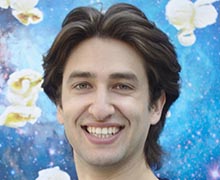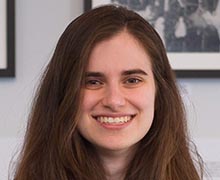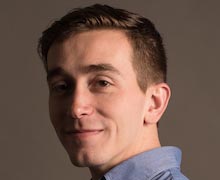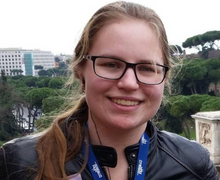Next-Generation Fellows 2021

Matt Caplan is a theoretical nuclear astrophysicist and is currently a professor of physics at Illinois State University where he studies white dwarf and neutron star interiors. Dr. Caplan received his Ph.D. in 2017 from Indiana University and his BS in 2013 from the University of Virginia, and from 2017 to 2019 he was a Canadian Institute for Theoretical Astrophysics National Fellow at McGill University. Beyond academia, he is actively involved in public education and science communication, writing for a number of educational outlets.

Bárbara Cruvinel Santiago is a Physics Ph.D. student at Columbia University working on astronomical instrumentation under NASA’s FINESST Fellowship. Originally from Brazil, she earned her BS in Physics at Yale University in 2017 and worked at MIT’s LIGO lab for a year. Bárbara was the president of the Columbia Physics Grad Council and Yale Women in Physics, having been involved in advocacy for minorities in STEM since college. In graduate school, she joined congressional lobbying efforts to advocate for student immigration rights. After finishing her Next-Generation fellowship project, she’s now working on an online platform to educate scientists and the public about nuclear issues in Brazil.

Alan Kaptanoglu is a plasma physicist working as a post-doctoral researcher at the University of Maryland. He designs new algorithms for coil and permanent magnet optimization for stellarators. He received his Ph.D. from the University of Washington in 2021, and his BS from Stanford University in 2016. He has written for the Bulletin of Atomic Scientists and plans to continue his work on nuclear threat reduction that began with the Next-Generation Fellowship.

Katherine Quinn is a theoretical physicist working as an Associate Research Fellow at the Center for the Physics of Biological Function, with joint appointments and Princeton University and the City University of New York. She uses information geometry to understand universal patterns in models of complex systems, from biophysics to machine learning. Dr. Quinn received her Ph.D. in 2019 from Cornell University and her BS in 2013 from McGill University. Outside of research, she is actively involved in advocacy and education–combatting gender discrimination in academia and advancing prison reform–in addition to her commitment to nuclear threat reduction.
